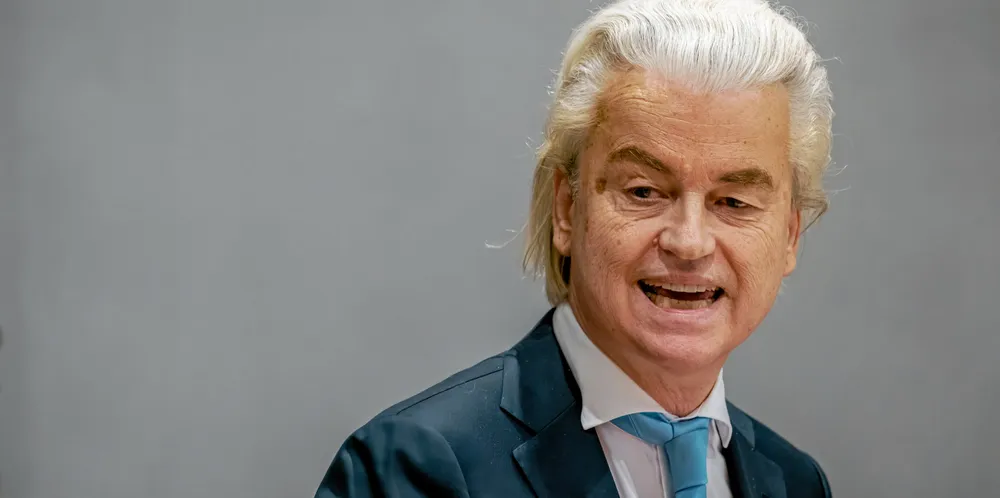'Four years of climate change denial' | Does shock far-right win in Dutch elections pose a threat to renewables?
ANALYSIS | Geert Wilders' Freedom Party (PVV) wins nearly a quarter of votes on climate-denying and anti-wind and solar platform but faces difficult coalition talks

A continued expansion of wind and solar power in the Netherlands may be threatened after the victory of far-right and anti-renewables populist Geert Wilders and his Freedom Party (PVV) in the Dutch general elections.
Wilders after some 94% of votes were counted seems to have won close to a quarter of Dutch votes, which would grant his PVV 37 of the 150 seats in the House of Representatives, the key second chamber, or lower house, of parliament in The Hague.
Running on a radical anti-immigrant and anti-Islam platform, Wilders so far had been shunned by most other parties, but after his landslide victory told his centre-right rivals to swallow their pride and enter into a coalition that would make him prime minister.
Wilders faces major challenges forming a coalition government in a fragmentated Dutch party system but Green groups are already alarmed.
“A Wilders government will mean four years of climate change denial,” the group said (agreeing with another group called Young Climate Activists that used the same quote). Extinction Rebellion added: “This outcome will likely mean a rollback of climate measures, new fossil fuel investments, exclusion of marginalized groups, and more.”
The PVV has argued that climate change is natural, and the small Netherlands could do nothing against it anyway. In its election manifesto, the PVV said the country must stop using energy from wind, solar or biomass, and instead continue with gas and coal-fired power stations as well as build new nuclear.
A U-turn in Dutch energy policy would be a major setback for European climate policy.
4GW offshore tender ongoing
'They make money for the government, provide a lot of employment and provide cheap energy. Wilders would like to keep energy bills affordable, just like his intended coalition partner Omzigt [see below]," Vos said.
Furthermore, the Netherlands is also bound by European objectives and regulations, he cautioned.
Wilders' PVV could theoretically form a coalition with the VVD and the NSC, which would have a solid majority of 86 seats.
But it is unclear whether the polemical Wilders, who in the past has called for outlawing the Quran and mosques, can win over current VVD leader and outgoing justice minister Dilan Yesilgöz, who is of Turkish origin with a family that fled to the Netherlands in the 1980s.
Yesilgöz until Tuesday still had ruled out a pact with Wilders but didn’t repeat that statement after the election, saying it had been based on the expectation that the far-right leader would not be able to find a majority anyway.
It could be even tricker to convince Omtzigt and his only recently formed NSC to join hands with Wilders. During his election campaign, Omtzigt had called the PVV's positions contrary to the Dutch constitution, but never clearly stated whether he was excluding a cooperation with the far right.
If Wilders doesn’t succeed in forming a government, Timmermans could try (although he told Dutch media his party would now likely find itself in opposition).
A four-way coalition of this Green-Labour alliance with the centre-right parties VVD and NSC, joined by the left-liberal D66 party of outgoing energy minister Rob Jetten – a star in Europe’s green energy policy – would have a 78-seat majority.
But it would likely be an uphill struggle for Timmermans to get the VVD on board after he had rallied to push the VVD “to the reserve bank” during his election campaign.
Jetten, whose D66 is one of the big losers of the election with now only nine seats left, has been outspoken against Wilders in a first reaction, saying: “The politics of intolerance has been normalized when it should never be normal.”
Like the PVV, the VVD also favours building new nuclear power stations, but it also wants to keep the current course in offshore wind. How that would play out in coalition talks is unclear.
One thing seems to be certain: The Netherlands and the renewables industry are probably in for months of uncertainty.